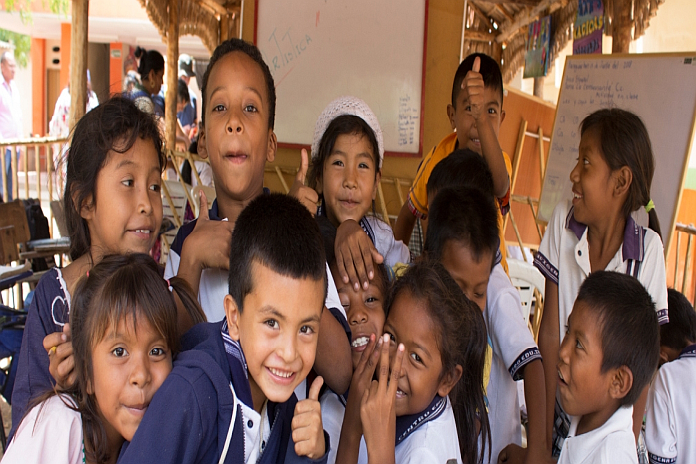By PAULA ROSSIASCO and GRETA GRANADOS DE ORBEGOSO
The Venezuelan exodus is impacting Latin America at a magnitude and speed never seen before. Since 2015, over 6 million people have left Venezuela, making it the second-largest migration crisis in the world. Colombia has received the highest number of migrants and refugees, welcoming 1.8 million Venezuelans. Peru is the second-largest hosting country with 1.3 million Venezuelans followed by Ecuador and Chile hosting 508,000 and 448,000 respectively.
The political, economic, and social impact of the Venezuelan exodus on countries in the Latin America and Caribbean (LAC) region is significant and is exacerbated by the COVID-19 pandemic. Governments need to adapt policies, financing mechanisms, and service delivery to manage the increasing and unexpected arrival of migrant population.
Providing a humanitarian welcome to Venezuelans, including access to food, health and education services, housing, and access to the job market, as well as ensuring their social and economic integration in the medium term is also important.
Despite these challenges, Venezuelan migrants and refugees have much to contribute: they are well-prepared and motivated young people, and their contribution to the country’s economy could be even more necessary in the post-pandemic context.
How can the World Bank support LAC governments in implementing policy and programmatic responses to the Venezuelan exodus to turn this challenge into an opportunity for all?
The World Bank has supported host countries in Latin America since 2017, with a more comprehensive engagement in Colombia, Ecuador, and Peru. In these countries, analytical capacity, financial assistance, and policy dialogue are positively impacting the response. For example, The World Bank, supported by the State and Peacebuilding Fund (SPF) provides a framework that helps countries to address the drivers and impacts of fragile, conflict- and violence-affected (FCV) settings and strengthen their resilience.
How can the Bank be flexible, agile and responsive, addressing urgent needs as they arise?
- Conducting a multi-sectoral analysis of the impacts of this exodus. Reporting on the impact of the Venezuelan migrants and refugees in Colombia, Ecuador and Peru due to its impact. This analysis became a model for similar exercises in Chile (2022) and in other countries in the region.
- Engaging with national authorities for policy development and advocacy in favor of improving the living conditions of migrants, refugees, and local communities. For example, building on this strong policy dialogue, in 2021 the World Bank approved a US$500 million loan for the first Development Policy Financing (DPF) centered exclusively on cross-border migration to support the Colombian government’s strategy for the social and economic integration of Venezuelan population.
- Accompanying new administrations in the process of defining a response for the long-term inclusion of migrants and refugees. This work began in Colombia in 2018 and, more recently, in Peru and Ecuador in 2021, and in Chile in 2022. This support is enabling the design of policy notes and strategies that outline a framework for the long-term integration of Venezuelans with the objective of advancing policy dialogue at the national and subnational levels.
- Giving compelling evidence on the state of xenophobia—such as perceptions, values—to add to and complement the existing evidence on the consequences of discrimination in the social, labor, consumption and access to services dimensions. For example, The World Bank generated buzz and conversation around the Venezuelan exodus due to its participation in the Econothon 2019 and TEDxTukuy 2019 to dispel common myths.
- Leveraging new funds and strengthening links with stakeholders. In 2020, the SPF supported the creation of two emergency cash transfer projects to support the vulnerable Venezuelan population and host communities in Peru and Colombia benefiting more than 114,120 people in the context of COVID-19. Both projects are carried out in collaboration with United Nations agencies and key partners in filling the humanitarian-development gaps.
With solid analysis, policy dialogue, and social innovation, new ways of understanding and managing migration can be presented. This can help policymakers and governments to see this situation as an opportunity for development rather than a challenge.







